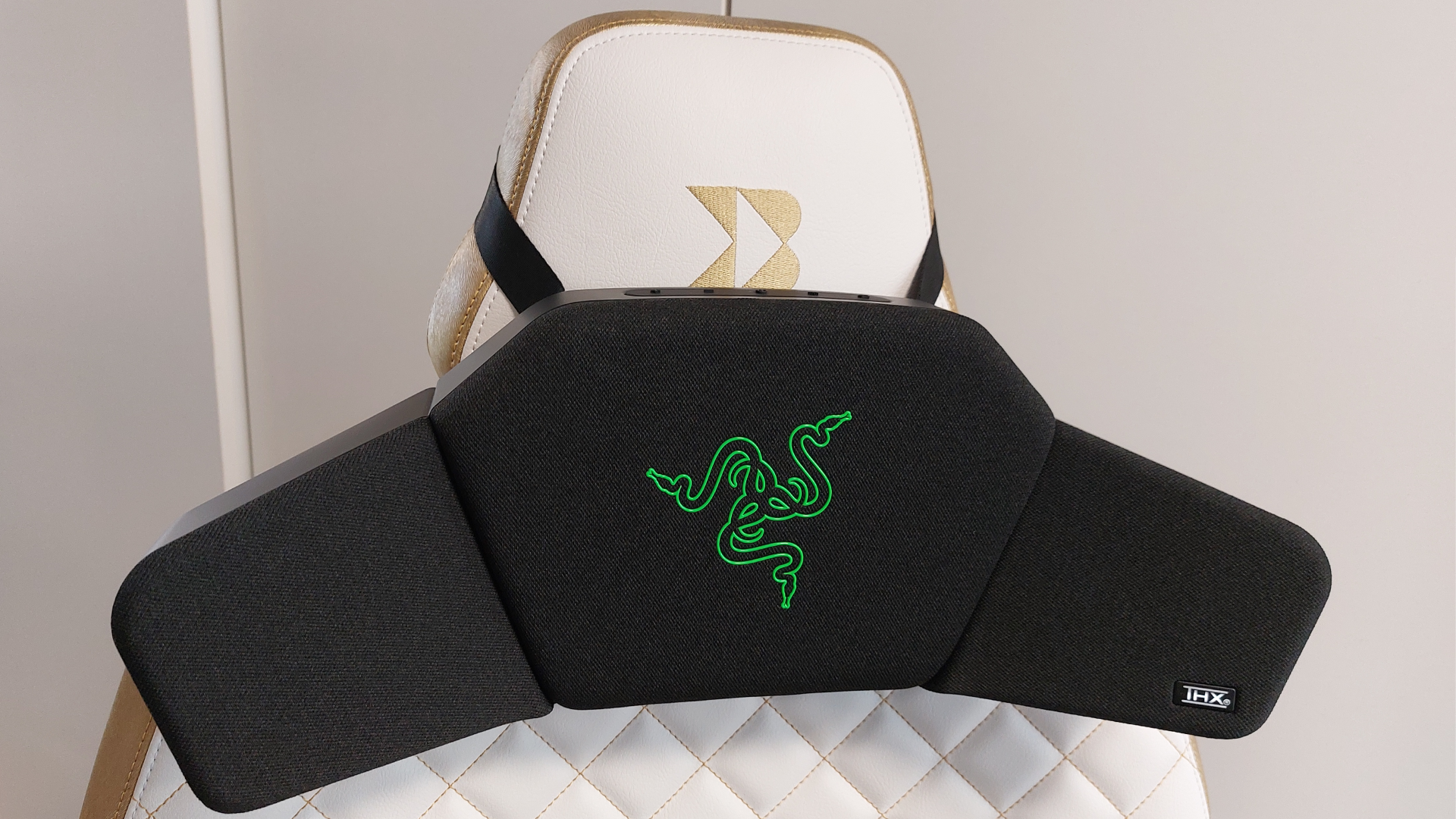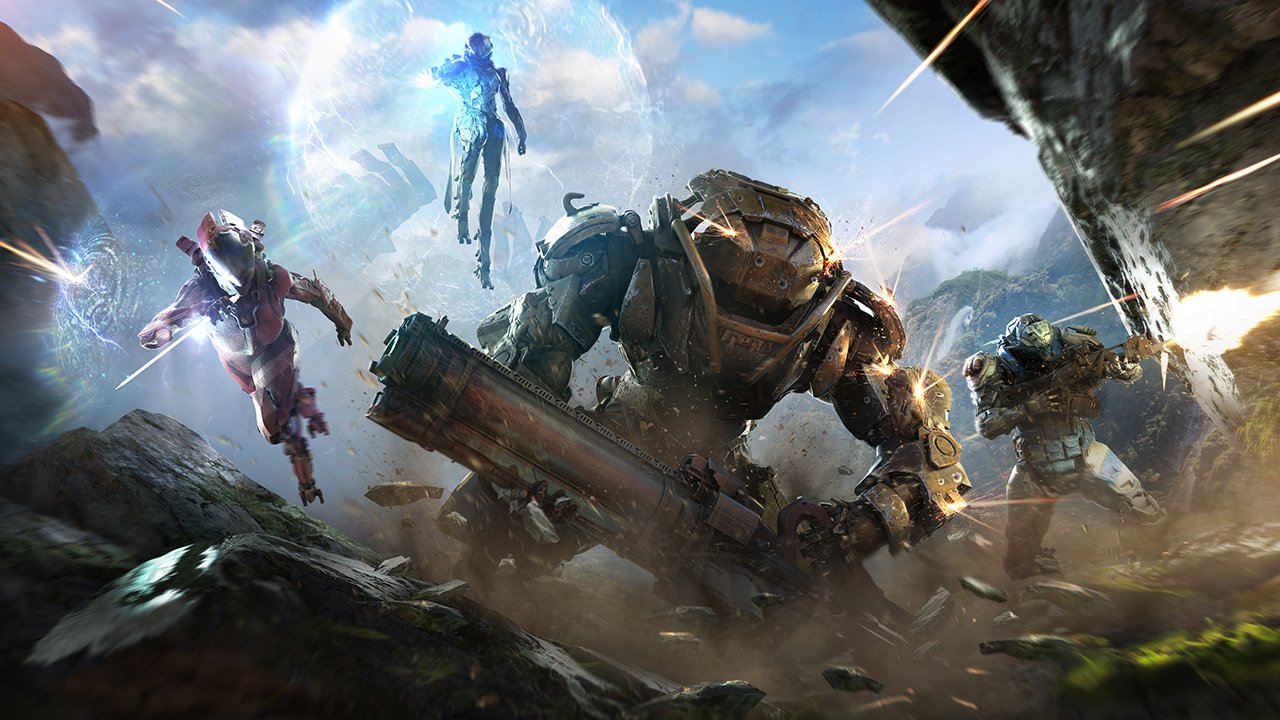

Anthem's executive producer is one of BioWare's longest-serving employees. With over two decades with the company, Darrah's credits include programming almost the entirety of Baldur's Gate's combat, as well as being an executive producer for the entire Dragon Age series. He also was a project director for Dragon Age 2.
EA's reveal of Anthem during its E3 press conference definitely gave us more questions than answers. The co-op loot shooter looks like Destiny, but BioWare's insistence that their take on the genre is something new and innovative is hard to wrap our heads around. Even after playing a 30 minute demo, we still couldn't get a strong sense for how Anthem differentiates itself.
Even though we enjoyed combat and flying around in our exosuit Javelins, there were still a million questions burning in our brains about how these systems would stack up to deliver something special. After speaking with executive producer Mark Darrah, it's not exactly clear that Anthem isn't just Destiny with jetpacks—which isn't something to aspire to if the recent backlash around Destiny 2 is any indication.
Still, BioWare is obviously keeping a lot of things a secret, and we're keen to see what kind of story Anthem is able to tell. Here's what Darrah he had to say.
PC Gamer: People have this expectation for what is a BioWare game and Anthem seems to subvert a lot of that. Why move in this new direction away from what BioWare has been known for?
There's expectations coming in from a genre that has emerged and encapsulated Anthem since then that is maybe throwing people off a little bit.
Mark Darrah
Mark Darrah: You know the interesting thing is if you look back at BioWare's history, we've been changing the types of games we've been making the whole time. I think what has been happening for a lot of that time is that the definition for genres has also been shifting. If you look at Baldur's Gate compared to Dragon Age: Inquisition, they're both considered RPGs but they're very different from each other. There are relationships in [Baldur's Gate] but there are no romances, it's a different camera angle—it's different in a lot of ways. Evolution has always been a part of our lineage.
I think what's happening with Anthem to some degree, we were looking to do something that allows us to tell an ongoing story, to have a world that has really good watercooler moments. One problem we often have with our storytelling is that it's not really viral, people don't really share their experiences because they're worrying about spoiling it and also there's a tendency for people to think that maybe they like it but other people won't. But having this shared world gives people a lot more opportunities to talk to people and not worry about ruining that experience for them.
What's happened since Anthem first started development is that an entire genre has risen out of nowhere. I mean, Borderlands existed when Anthem started but nothing else did. I think that the connection to what we've done in the past is still clearly there, but there's expectations coming in from a genre that has emerged and encapsulated Anthem since then that is maybe throwing people off a little bit.
Keep up to date with the most important stories and the best deals, as picked by the PC Gamer team.
What is the balance between treating a slice of Anthem as an action experience and a narrative experience. Is it delivered in missions or is it through contextual or event-based experiences?
So there is some in-mission narrative that is delivered. But we don't do any branching in that, it's more radio chatter or conversation that everyone shares and sees that. And then we move the branching into Fort Tarsus, or at least one of your hubs, Fort Tarsus or maybe your Strider. What that is designed to do is to remove the social obligation that you feel. If you try to play a story, if you play BG multiplayer or you play... Divinity: Original Sin 3?
Original Sin 2.
Original Sin 2. You can play that co-op. It's really awkward because someone in the group wants to keep going and you want to sit back and think about the conversation, so what we do is we try to make the co-op experience very seamless, but not just seamless in joining but seamless in breaking apart as well. So when you finish a mission, unless you have a [premade] group, we want that connection to dissolve, so you kind of go away and then you can go and join back up again if you want. To really remove that barrier for co-op experience. We've grouped up, but I kind of don't want to play with you anymore, how do I get away from that? I mean, whether I need to leave for the night or even if I just want to go into freeplay and explore some lore and pick some crafting materials up or talk to people in Fort Tarsus, how do I seamlessly and gracefully leave that group? So we try to remove that barrier and dissolve these groups more naturally.
Is there any kind of narrative choice in the game? Are you making branching decisions like you do in other BioWare games?
I think we're only doing binary branching, as opposed to six [options], just because this is bringing in some different people and that can kind of be an intimidating thing.
Mark Darrah
So there is branching in Fort Tarsus, you make choices. I think we're only doing binary branching, as opposed to six [options], just because this is bringing in some different people and that can kind of be an intimidating thing. Out in the world, there's no branching because you'll be with other people and we don't want you to stop and agonize over a decision.
When I see a game like this and I know that my friends are going to be in it every night playing whereas I'm a bit more casual, is this something where I'm going to be left behind?
They'll be able to play with you on any of your missions to help you out and bring you along. You'll be able to play together in Strongholds [a more challenging form of group content] and in freeplay [where you can explore the world at your own pace], but you won't be able to jump ahead in the story and see the story missions they're seeing. But that's actually only part of what's there to experience. In terms of actual progression, we do have a steeper progression curve than something like Destiny, because of PvP they have to have a very flat progression curve. Not having PvP allows us to steepen that and make the rewards more meaningful, but that does mean that there's a difference between a first level character and a 25 or 30 level character.
Are Strongholds sort of like dungeons in other MMOs?
Yeah, they're similar. The reason we didn't call them dungeons is because they're relatively big and have a lot of open space—they're outdoors. So dungeons just caused this odd…
They make it feel like you're going into a cavern.
And often they do have caverns, but you'll come out into this big caldera that's 400 acres in size and you'll be like, how is this a dungeon anymore? But it's a four person thing, more difficult, higher loot rewards. So, yeah, basically like a dungeon.
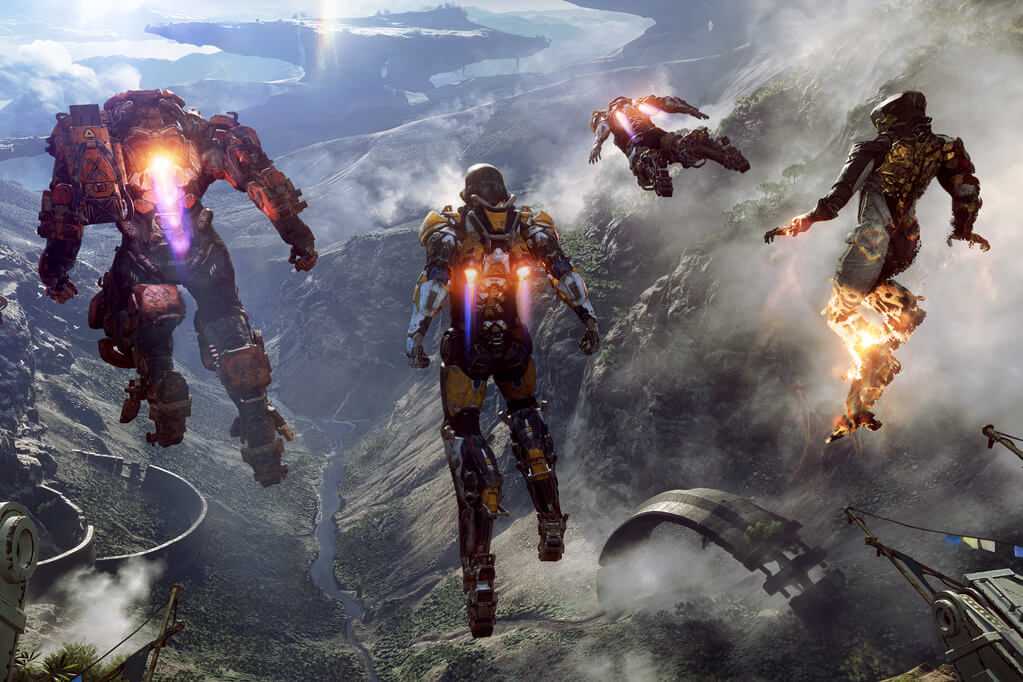
Is there a good reason for high level players to go back and do stuff with their low-level friends?
Yeah, so when you do a mission ... [you] can come in as a mentor as well and we reward you in different ways to say, go play with people, maybe not even people that you know, who are earlier in the game to show them how to play, help them out. It also kinda gives them an exposure to, oh look, this is a level 30 guy with epic shotgun that lights people on fire. And now you have something to strive for. So, yeah, absolutely, there are rewards specifically designed to encourage people to go back through that older content with other people.
Let's say I just want to explore and see what's out there, how much freedom do you have, even as a low level character, to go out and have a good time in the world?
Freeplay is a mode designed specifically for going out alone—there's four people on the server, but you're not tethered together. Your direction is yours and everyone else has their own thing so you're probably barely even seeing other people. In the open world you can definitely get yourself into trouble, but you also have a jetpack so you can, if you're careful, get yourself out of most of the trouble. You're probably not going to kill a titan, but you can probably get away from the titan.
Say you're high level in freeplay, what's the drive of that? Is it just to explore the lore or are there events or quest chains?
So in freeplay there's world events, so the titan is a world event. As well, freeplay is the best place to get crafting materials because we populate it more densely in that mode because it's about taking your time and looking around. So when you're looking for crafting materials that's the place to do it, you can get a little bit on missions but it's really more, get your boots on, I'm going to freeplay if you're looking for crafting materials.
There's only four people in freeplay? That strikes me as quite a low number, especially if world events are triggering. Are world events designed to be soloed?
So world events are balanced above solo. You could solo them, but they will broadcast themselves and try and draw people back together. But what we're trying for with freeplay is, we're actually looking for a more solitary experience. We're not discouraging, but we aren't encouraging you to stay together, but then world events will draw you back together.
So in terms of crafting, is that how you work towards high level endgame stuff or is it more important to be doing events or other things?
So the balance isn't really clear to me yet, but you can do both. There are loot drops, and then as you get into the max level eldergame stuff that's where you're getting the infused shotguns of 'blah blah blah.' It's designed to be a very long loot chase, much more like Diablo than like Destiny in terms of there's a little bit of randomness in there. You can get the best shotgun and then get the shotgun with the best mod and then get the shotgun with the best stats. It gives you a lot more to achieve.
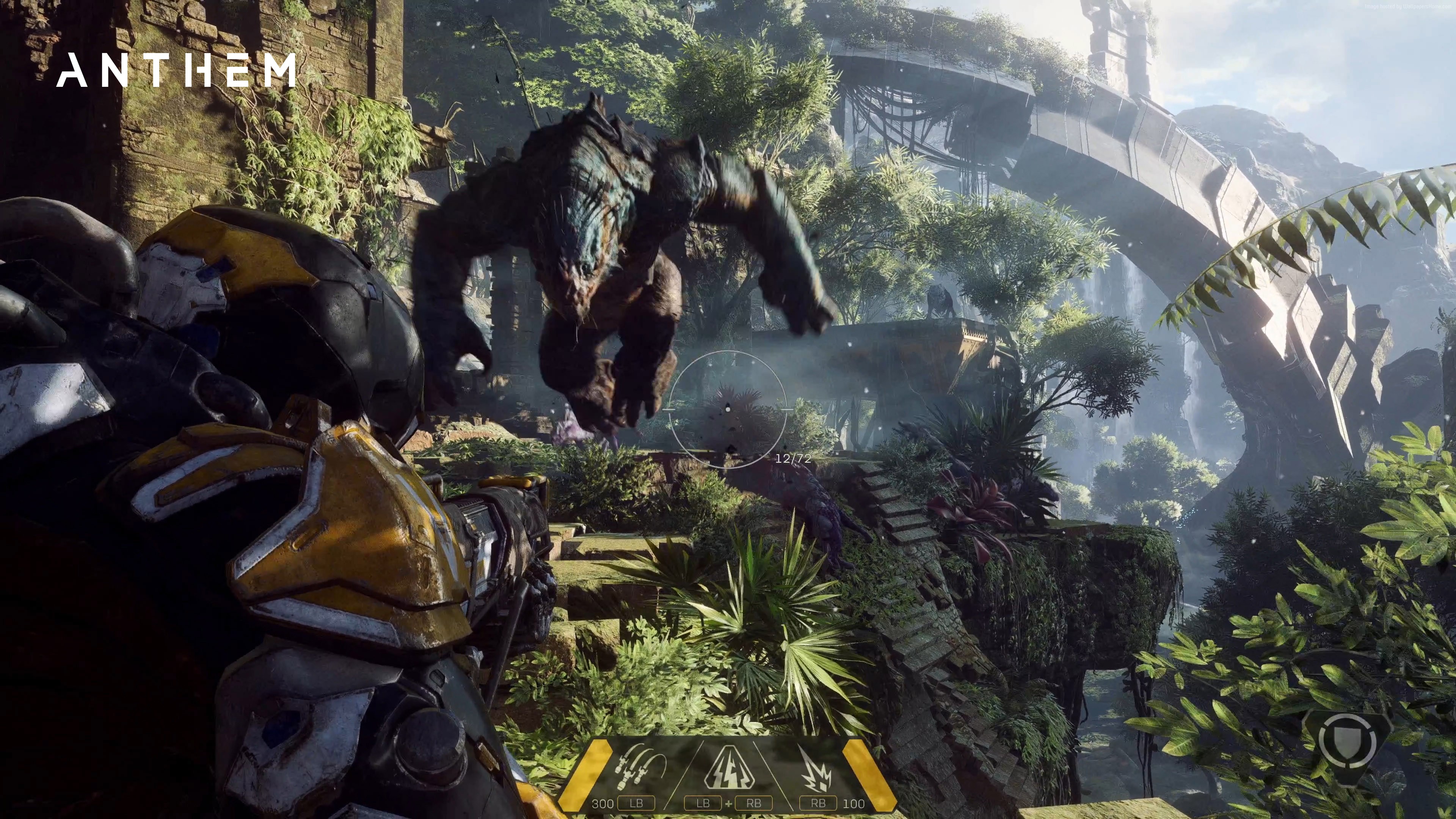
During combat, are there mechanics for aggro and does that play into classes?
There's no aggro control on the Colossus [the tankier Javelin] right now, but that's probably something that we're going to look at. Everyone's natural inclination is to be like, that's a tank, it should probably have some aggro control. Right now it's largely just based on DPS. And certainly when we get into the Interceptor and the Storm [other Javelins], they're much breakier, they'll need some aggro control for sure.
Chris: What happens when you die?
Steven: I ask myself that question every day.
You can be revived by other squad members, and in freeplay by other people that are on the server. It'll broadcast the fact that you're down and maybe someone will come, maybe they won't. If that doesn't happen in a certain period of time, you will respawn at a resupply point which is basically a cache of gear out in the world. If you're near the end of a mission and two of you go down, other people can bring you back up. Or, if you're like, you're never going to be able to revive me, just send me back to the resupply point. But if all of you go down you go back to the resupply point.
So what about the boss. If we all wipe, does the boss stay in the same condition?
So right now he stays in the same state he was when you went down. I will see where we end up because I can certainly argue both sides of that one.
What sort of mechanics are in place for making meaningful boss fights? One of the problems with a lot of these games is that their health bar is just really big and that's it.
One of the things that really is interesting with Anthem is the mobility. We can do a lot more stuff around what would normally be relatively simplistic 'stand behind the column to avoid the big beam that kills everything.' We can do more interesting things because you can fly, so we can do more stuff that forces you to move around the battlefield. And additionally, because we have elemental damages and resistances, we can get into a little bit more puzzle type stuff where we can look into opportunities for you to do a lot better if you're taking advantage of that elemental stuff.
So you've mentioned Strongholds, you've mentioned freeplay, and then story missions. Are those kind of the trifecta of content, so to speak?
So there's some other things that we aren't really talking about yet, like stuff we're doing in the eldergame. But yes, those are the big three things.
And will PvP be off the table forever?
I don't know if it's off the table for forever, but because of us taking advantage of not having PvP and pushing into more extreme kinds of loot, if we did have PvP it'd have to be structured in such a way that loot balance wasn't a problem or a separate mode that you took a different Javelin—we'd make a special Javelin just for PvP that has its own much more restricted loot tables. I wouldn't say never, but it hasn't been taken into account into our design at all.
When it comes to weapon and itemization, how many different weapon types are there?
Yeah, so there's the primary gun types like pistols, assault rifles, shotguns, grenade launchers, and miniguns. Those kind of overlap the different suits, so the lighter suits can use pistols but the Colossus can't use pistols but everyone else can't use the minigun that he can use. There's an overlap there. And then each Javelin has different gear slots that are unique to that Javelin. So you saw that the Ranger has a wrist slot that's like a rocket and then for that you can get different like; okay this is a rocket that does damage and this is a rocket that lights enemies on fire. They have grenades, and each suit is like that.
Are there any weapons you can tell us about that are really creative, non-conventional firearms?
We're probably going to have some aura type things to be more, a bit more providing other aspects of combat and not just doing pure damage. And the Storm is much more elementally driven, they have a gun but they're not using that they're often shooting ice bolts and things like that. They're a bit more mystical in nature.
Apart from what we saw in the demo in the landscape, the caves and whatnot. Can you talk about other parts of the world that vary from what we've seen?
We're not talking about that too much right now but it is a world that… so the Scars have definitely left footprints over parts of the world where they've come in and build these metal hives that they sort of build and live in. And then there's places that are really dominated by the Shaper ruins which are sort of these really high tech, circular areas. Biome-wise, I don't think they'll be able to talk about that now.
Can you trade with other players?
So we're not going to trading at first at least from a balancing perspective, just so we don't have this problem of 30 level people loading up their first level characters with stuff that throws the game out of whack. I wouldn't take it off the table forever, it's certainly something that allows an interesting longterm engagement. We would like groups of people to be able to share something, so that they can say, we all want to be purple and have this kind of design on us. So some way to allow that experience.
So if Chris and I are both level 30 and I get the gun he's been wanting, there's no way to give it to him?
No.
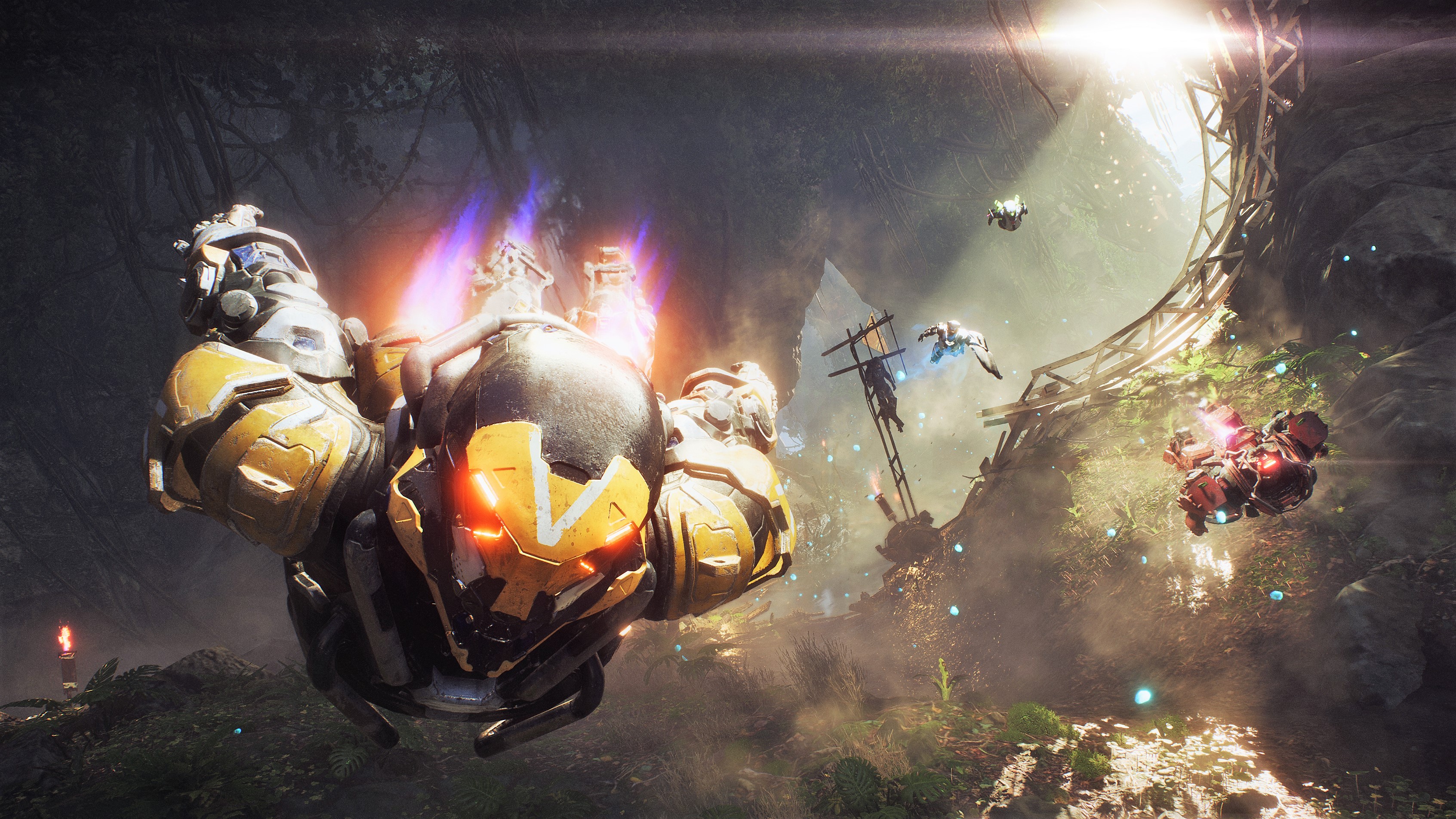
Bioware has a commitment to characters that will come through in the experiences people will have in Fort Tarsus as well.
Mark Darrah
So what's the live update plan look like then. Is there a series of things that you think is a really good way to expand in the future? Seasonal stuff, that kind of thing?
We want seasons, we'll have live events. I don't think we're really to talk about it in details quite yet. Partially just because I just want to be able to adapt and change it as we get into the last stretch.
Is there any kind of social structure between players. Can you form guilds or clans?
Yes, but I feel that requires a longer explanation with more supporting materials than I have to provide.
What feature do you see being what keeps players coming back?
I think second to the [endgame]—the progression should keep you running—there is something called the Pact of Glory and every week you have certain goals to achieve and if you achieve them you get additional rewards of in-game currency to use. And then the other thing is that because this is an unfinished world, it allows us to do things and to change and really, long term, what keeps people engaged long term is shifting the way they think about what they already have.
So traditionally, BioWare, when we release DLC and things like that, it's okay, here's some new story and people go [eating noises] and then they're done. But if we can change almost the basic concept of what's going on, so you're like, okay so I have a flamethrower but now all the monsters are flame monsters, so what am I going to do with this thing? You can kind of introduce these puzzles over time that kind of change up the way the relationship the player has with the equipment they already have, that's really what I think keep people engaged long term in the games that have lasted a really long time, it's that ability to shift the meta over time.
You're entering into this market that's dominated by Destiny. It's the big shooter in this genre, what's the special stuff about Anthem that would convince someone who is really into Destiny to drop that and play this instead.
For Anthem, it's really about that feeling like a superhero. Having that feeling of moving seamlessly, working together in bigger combos and having that feeling like you're not just a guy with a gun, you're a guy that has abilities beyond that. And then I think, at the end of the day, BioWare has a commitment to characters that will come through in the experiences people will have in Fort Tarsus as well.
The collective PC Gamer editorial team worked together to write this article. PC Gamer is the global authority on PC games—starting in 1993 with the magazine, and then in 2010 with this website you're currently reading. We have writers across the US, UK and Australia, who you can read about here.


